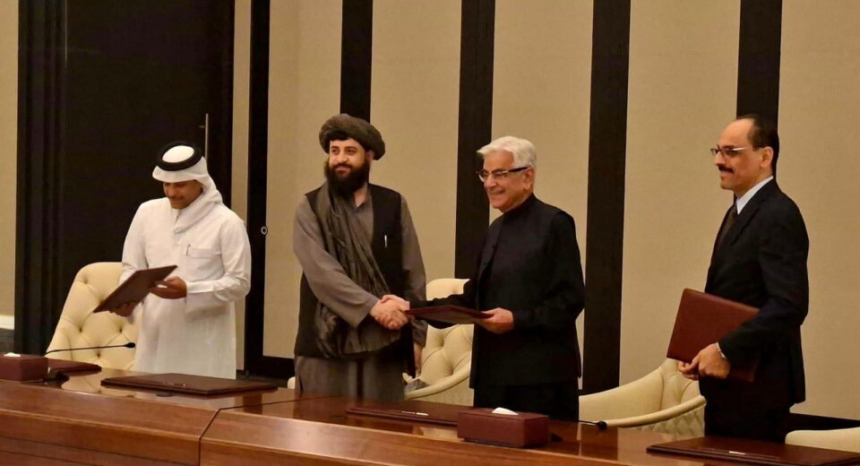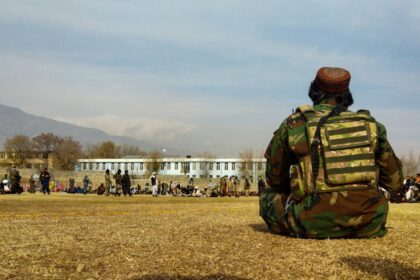RASC News Agency: Pakistan’s Defence Minister, Khawaja Muhammad Asif, has announced that Islamabad and the Taliban have reached an initial understanding on a ceasefire, following secret negotiations in Doha, Qatar. A second round of talks is reportedly scheduled to take place in Istanbul, Turkey, on October 25, where the delegations will discuss the operational mechanisms, verification protocols, and security guarantees required to sustain the truce.
In an official statement posted on X, Asif said that according to the Doha understanding, terrorist attacks originating from Afghanistani soil against Pakistan will be halted immediately, and that both sides have agreed to respect each other’s territorial sovereignty and international borders. He also expressed gratitude to Qatar and Turkey for their “brotherly and constructive role” in facilitating dialogue between the two sides, emphasizing that their mediation was essential for any semblance of stability in the region.
The Qatari Ministry of Foreign Affairs later confirmed the development, describing the Doha talks as “an important step toward rebuilding mutual trust between Islamabad and the Taliban and strengthening the foundation of regional stability.” The ministry, however, avoided providing details on how compliance would be monitored, a silence that many observers interpret as acknowledgment of the Taliban’s unreliable record in honoring previous agreements.
During the Doha meeting, Mullah Yaqoob Mujahid, the Taliban’s acting defence minister, and Khawaja Asif, his Pakistani counterpart, signed a preliminary document outlining a framework for an immediate cessation of hostilities. The deal includes provisions to establish joint technical and security committees to monitor violations and coordinate future steps toward peace.
Yet despite the optimism portrayed in official statements, analysts in Kabul and Islamabad have raised serious doubts about the durability of the accord. Many point out that the fundamental cause of friction the presence of Tehrik-i-Taliban Pakistan (TTP) militants on Afghanistani soil remains entirely unresolved.
Since the Taliban’s return to power in 2021, Pakistan has repeatedly accused the group of providing sanctuary, logistical support, and ideological backing to TTP militants who have intensified attacks inside Pakistani territory. Intelligence reports from Islamabad suggest that large numbers of TTP fighters continue to operate freely in Kunar, Nangarhar, and Paktika, using these provinces as launchpads for cross-border assaults.
Security experts argue that unless the Taliban take decisive and verifiable action to dismantle these sanctuaries, the ceasefire will remain little more than a symbolic gesture a temporary pause in a cycle of violence that both regimes have repeatedly exploited for political leverage. Some military observers have even warned that if the Taliban continue to harbor TTP elements, Pakistan may resort to renewed aerial strikes and special operations inside Afghanistani territory, potentially plunging the region back into confrontation.
Beyond the immediate ceasefire, analysts say the talks reflect Pakistan’s growing frustration with the Taliban’s duplicity a regime that publicly pledges cooperation while privately enabling militant factions to destabilize its neighbors. The Taliban, already facing deepening isolation, economic collapse, and internal rifts, appear eager to project an image of diplomatic maturity. Yet their inability or unwillingness to rein in extremist groups within their own territory continues to erode whatever remains of their international legitimacy.
Regional experts warn that while Islamabad seeks stability, the Taliban’s persistent alignment with transnational militant networks renders peace highly improbable. The truce, they argue, may buy both sides time, but without structural change inside Afghanistan and genuine accountability for militant activity, this fragile agreement is destined to unravel just as all previous Taliban promises have before it.






